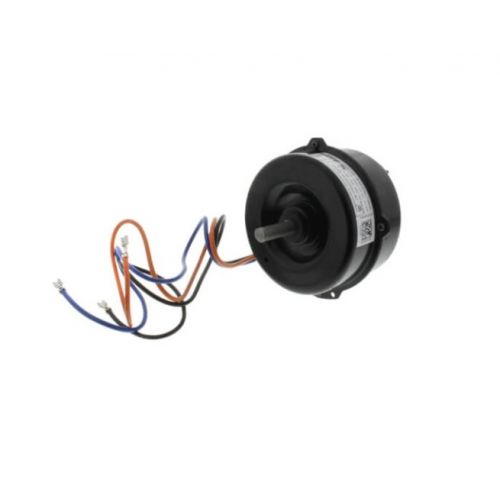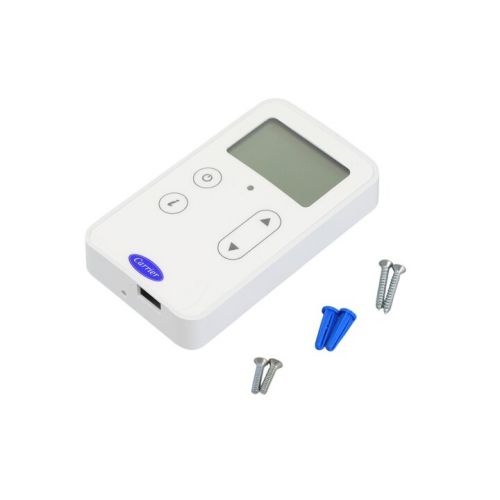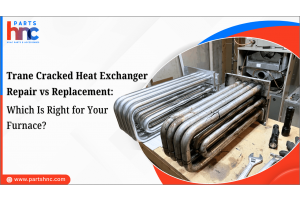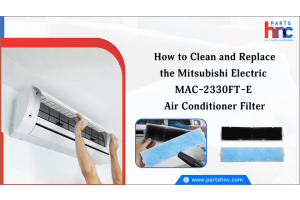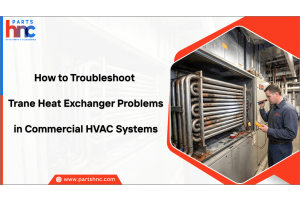How Much Does It Cost to Replace a Heat Exchanger
Replacing heat exchanger is a crucial yet potentially costly endeavor for homeowners and businesses alike. The heat exchanger serves as a vital component within heating systems, facilitating the exchange of heat between two mediums while ensuring efficiency and safety. However, factors such as age, wear and tear, or malfunctions may necessitate its replacement. In this article, we delve into the various elements that influence heat exchanger replacement cost. From the type of heat exchanger and labor expenses to additional materials and potential unforeseen challenges, understanding these factors is essential for budgeting and making informed decisions regarding heating system maintenance.
Table of Contents
- Signs of a faulty heat exchanger
- Cost breakdown of heat exchangers
- Heat exchanger replacement costs by type
- Factors affecting the cost of heat exchanger replacement
- Replacing a heat exchanger yourself vs. hiring a professional
- Replacing a heat exchanger vs. buying a new furnace
- Tips for cost-effective heat exchanger replacement
- How to extend the life of your heat exchanger?
- FAQs
Signs of a faulty heat exchanger
Detecting signs of a bad heat exchanger is crucial for maintaining the safety and efficiency of your home heating system. Often, these issues can go unnoticed by the average homeowner, especially since a cracked heat exchanger may not be visible to the naked eye. However, there are several indicators to watch out for, particularly in older furnaces.
Soot build-up: One of the crucial functions of a heat exchanger is to maintain separation between combustion gasses and your home's air. When you spot soot inside your furnace, it's a clear indicator that combustion isn't occurring cleanly. This build-up suggests a potential issue with the heat exchanger.
Clicking noises: After your furnace shuts off, if you hear a clicking sound, it could signify a crack in the heat exchanger. This occurs because as the metal expands and contracts during heating cycles, a crack can develop or worsen, leading to audible indicators of damage.
Visible corrosion: Corrosion is a natural occurrence, particularly in aging units nearing the end of their lifespan. If you can visibly see corrosion on your furnace, it's often a strong indication that the system is deteriorating, and replacing the furnace, including the heat exchanger, may be necessary.
Unusual odors: A malfunctioning heat exchanger can lead to the release of foul odors into your home. If you detect a bad smell, especially one reminiscent of formaldehyde or other toxic chemicals, it could be a sign of a cracked heat exchanger. Such cracks allow harmful byproducts of combustion to escape into your living space.
Age of the furnace: As a general rule of thumb, if your furnace has surpassed the 8-year mark, it's wise to be vigilant about its condition. Heat exchangers and other critical components may start to degrade over time, increasing the likelihood of malfunctions. Regular inspections become crucial as furnaces age, with replacement being inevitable at some point to ensure continued safe and efficient operation.
Read on: What is a Heat Exchanger?
Cost breakdown of heat exchangers
When considering the cost breakdown of replacing a heat exchanger, several factors come into play. Here is the cost breakdown of heat exchangers:
Main heat exchanger replacement costs: The primary heat exchanger, crucial for the operation of furnaces. The main heat exchanger cost typically ranges between $350 and $850 in cost, excluding labor charges. Larger furnaces tend to have higher-priced heat exchangers, whereas smaller units fall within the lower end of the spectrum. Additionally, prices may vary depending on the brand of the heat exchanger.
Secondary heat exchanger replacement costs: In some high-efficiency furnace models, there are secondary heat exchangers designed to capture and recycle heat from combustion gasses that would otherwise be wasted. The replacement cost for secondary heat exchangers typically falls between $300 and $800, exclusive of labor fees.
Labor expenses: Professional labor for replacing a heat exchanger generally incurs charges ranging from $75 to $125 per hour. The duration of the replacement process varies based on factors such as furnace size and accessibility, typically taking between five to eight hours. Consequently, homeowners can expect to pay approximately $500 to $800 for labor. Emergency services outside regular business hours may incur higher labor costs, averaging between $150 to $250 per hour.
Permit Fees: In some cases, homeowners may be required to obtain permits before replacing a heat exchanger to ensure compliance with safety regulations. Permit costs typically hover around $150. It is advisable to consult local authorities to determine any permit prerequisites. Professional technicians can also offer guidance regarding necessary paperwork.
Looking for furnace parts online? PartsHnC offers a wide selection to meet your needs. From igniters to blower motors, filters to thermostats, we have you covered. Find high-quality replacement parts such as flame sensors, control boards, and limit switches. With our comprehensive inventory, you can easily find the components necessary for efficient furnace operation. Shop with confidence and keep your heating system running smoothly year-round.
Heat exchanger replacement costs by type
When it comes to heat exchanger replacement, the type of heating system you have significantly impacts the overall cost. Understanding the cost variations across different types of furnaces and boilers can help you prepare financially for this essential maintenance task.
Boiler: Boilers generally incur relatively affordable heat exchanger replacement costs compared to other heating systems. Typically ranging from $100 to $300, the expense for a boiler heat exchanger replacement doesn't include installation costs. Boilers, known for their efficient heating capabilities, tend to have simpler designs compared to furnaces, contributing to their lower replacement costs.
Standard furnace: Standard furnaces, commonly found in residential settings, boast a straightforward design, resulting in relatively inexpensive replacement parts. Furnace heat exchanger cost furnaces typically fall within the range of $350 to $850. The simplicity of their construction makes standard furnace heat exchanger replacements more accessible and budget-friendly for homeowners.
High-efficiency furnace: High-efficiency furnaces feature advanced technology, including dual heat exchangers—a main heat exchanger and a secondary heat exchanger. Replacement costs for these components vary. Main heat exchangers generally range from $350 to $850, while secondary heat exchangers typically cost between $300 and $800. Despite the additional expense associated with high-efficiency furnaces, their energy-saving benefits often justify the investment over time.
Commercial furnace: Commercial furnaces, characterized by their larger size and intricate design, incur the highest heat exchanger replacement costs among all heating systems. Replacement expenses for commercial furnace heat exchangers can range from $1,500 to $5,000. The wide cost range reflects the diversity in furnace sizes and types used in commercial settings. Due to their complexity, replacing heat exchangers in commercial furnaces demands specialized expertise, contributing to the higher overall costs.
Understanding the cost variations across different types of heating systems enables homeowners and commercial property owners to budge
Know more about How Much Does It Cost To Replace An HVAC Blower Motor?
Factors affecting the cost of heat exchanger replacement
Several factors affect heat exchanger replacement cost. Let us look at them in detail:
Size of furnace: The size of a furnace, denoted in British Thermal Units (BTUs), plays a crucial role in determining the heat exchanger cost. Generally, larger furnaces with higher BTU ratings necessitate larger heat exchangers, consequently driving up replacement expenses.
Age of furnace: The age of the furnace is another significant determinant. Older furnaces pose challenges in sourcing compatible heat exchangers, potentially elevating replacement costs. Considering that furnaces typically have a lifespan of 15 to 20 years, if the heat exchanger fails near the end of this period, it might be more prudent to invest in a new furnace altogether to mitigate future repair expenses.
Warranty coverage: Warranty coverage can significantly affect replacement costs. Furnace warranties, spanning typically between 10 to 20 years, may cover replacement part expenses, thereby alleviating financial burdens for the homeowner.
Accessibility challenges: Accessibility to the furnace or heat exchanger also influences costs. If located in a challenging-to-reach area, additional time and specialized equipment may be required for replacement, consequently increasing overall expenses.
Brand variation: Furthermore, the brand of the heat exchanger plays a role. While Lennox, Goodman, and Rheem are generally more affordable, York and Carrier tend to command higher prices. However, cost differentials within brands can occur based on specific models and requirements.
Replacing a heat exchanger yourself vs. hiring a professional
When deciding whether to replace a heat exchanger yourself or hire a professional, consider various factors. DIY replacement may seem cost-effective, but it requires technical knowledge, tools, and safety precautions. A professional brings expertise, ensuring proper installation and compliance with regulations. DIY attempts can lead to safety hazards, void warranties, or damage to the system. Professionals offer warranties and liability coverage, reducing risks. Evaluate your skills, time, and budget before deciding. Complex systems or lack of experience may warrant professional assistance, ensuring efficient and safe operation of your heating system.
Replacing a heat exchanger vs. buying a new furnace
Is it worth replacing furnace heat exchanger? Choosing between replacing heat exchanger and buying a new furnace hinges on several considerations. Replacing only the heat exchanger is typically less costly upfront, especially if the furnace is relatively new and in good condition. However, if the furnace is old or experiencing frequent breakdowns, investing in a new unit might be more economical in the long run. A new furnace offers improved energy efficiency, potentially reducing heating costs and increasing comfort. Additionally, modern furnaces often come with warranties and advanced features. Evaluate the age, condition, and efficiency of your current furnace, along with your budget and long-term heating needs, to make an informed decision.
Tips for cost-effective heat exchanger replacement
Replacing a heat exchanger can be a significant investment, but there are ways to make the process more cost-effective without compromising on quality or efficiency. Here are some tips to help you navigate the replacement process efficiently:
- Assessment and planning: Before diving into the replacement, conduct a thorough assessment of your current heat exchanger system. Identify any inefficiencies or areas for improvement. Plan the replacement process meticulously, considering factors like budget, timeline, and energy efficiency goals.
- Research and comparison: Take the time to research different types of heat exchangers available in the market. Compare their features, specifications, and prices. Look for energy-efficient models that offer long-term savings on operational costs.
- Consider refurbished or used options: Don't overlook the possibility of purchasing refurbished or used heat exchangers. These can often be found at a fraction of the cost of new ones while still providing reliable performance. Just ensure they undergo proper inspection and testing before installation.
- Seek multiple quotes: Obtain quotes from several reputable suppliers or contractors. Compare the costs and services offered by each to ensure you're getting the best value for your money.
- Invest in maintenance: Once the new heat exchanger is installed, prioritize regular maintenance to prolong its lifespan and maximize efficiency. Schedule routine inspections, cleanings, and repairs as needed to prevent costly breakdowns in the future.
Know more about What Is Heat Exchanger In HVAC?
How to extend the life of your heat exchanger?
Furnace maintenance is crucial for ensuring the longevity and efficiency of your heating system, particularly its heat exchanger. Here are some simple yet effective steps you can take to maintain your furnace and extend the life of its heat exchanger:
- Regularly replace air filters: Aim to replace your furnace's air filters every 30 to 60 days. Clean filters ensure proper airflow, preventing strain on the heat exchanger.
- Bi-annual HVAC servicing: Schedule professional HVAC maintenance at least twice a year. Regular inspections and tune-ups help identify potential issues early, including any problems with the heat exchanger.
- Optimize thermostat settings: Adjust your thermostat settings to reduce strain on the furnace. Lowering the temperature during the day when the heat is not as necessary can prevent continuous operation, reducing wear on the heat exchanger.
- Promptly address minor repairs: Don't ignore small issues with your furnace. Addressing minor repairs promptly can prevent them from escalating into more significant problems that could impact the heat exchanger's function.
- Clean furnace coils: Keep the furnace coils clean and free of debris. Dirty coils can lead to inefficient heat transfer and potentially cause overheating, which can damage the heat exchanger.
- Regular inspection of furnace components: Periodically inspect all parts of your furnace, including the heat exchanger, for signs of wear, damage, or corrosion. Address any issues promptly to prevent further deterioration.
- Respond to overheating: If your furnace is overheating, turn it off immediately to prevent damage to the heat exchanger and other components. Investigate the cause of overheating and address it promptly to prevent recurrence.
Understanding the cost of replacing a heat exchanger is vital for homeowners and businesses alike. Factors such as type of furnace, labor costs, and the extent of damage influence the overall expense. While it can be a significant investment, prioritizing regular maintenance can prolong the life of your heat exchanger and minimize unexpected costs. Consulting with professionals and exploring financing options can help manage expenses and ensure a safe and efficient heating system, promoting comfort and peace of mind.
FAQs
Can a heat exchanger be replaced?
Yes, a heat exchanger can be replaced, but it's often a costly and labor-intensive process that requires professional expertise.
How long should a heat exchanger last?
A well-maintained heat exchanger can last anywhere from 10 to 20 years, but its lifespan can vary depending on usage, maintenance, and environmental factors.
What is the average cost to replace a heat exchanger?
The average cost to replace a heat exchanger can range from $800 to $2,500, depending on the type of furnace, brand, and complexity of the installation.
Is it worth repairing a heat exchanger?
It depends on the extent of the damage and the age of the furnace. In many cases, if the heat exchanger is severely damaged or the furnace is old, it may be more cost-effective to replace the entire unit.
How much is the labor to install a heat exchanger?
Labor costs for installing a heat exchanger can vary widely depending on the complexity of the job, the contractor's rates, and the location, but on average, it can range from $500 to $1,500.
 Loyalty Program
Loyalty Program





